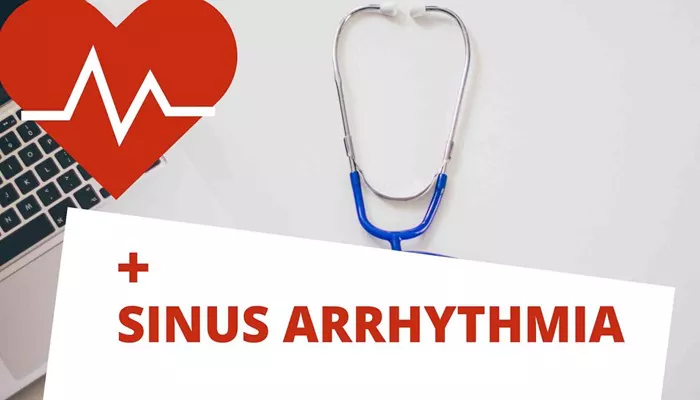Sinus arrhythmia, characterized by irregular heartbeats due to variations in breathing patterns, is a common and often benign condition. While it’s usually harmless, understanding how to manage and potentially reduce its occurrence can be beneficial for those affected. This comprehensive guide explores the causes, diagnosis, and strategies to address sinus arrhythmia effectively.
Understanding Sinus Arrhythmia
Sinus arrhythmia involves variations in the heart rate that are closely related to the respiratory cycle. Specifically, the heart rate increases with inhalation and decreases with exhalation. This phenomenon is more pronounced in younger individuals and often diminishes with age. It is typically considered a normal variation of heart rhythm rather than a disease.
Causes of Sinus Arrhythmia
Autonomic Nervous System Regulation: The autonomic nervous system (ANS) plays a crucial role in regulating heart rate.
Sinus arrhythmia is influenced by the balance between the sympathetic and parasympathetic branches of the ANS.
Increased vagal tone, which is more active during exhalation, can lead to a decrease in heart rate.
Respiratory Cycle: The link between respiration and heart rate is a normal physiological response. During inhalation, the heart rate accelerates due to the increased sympathetic activity, while exhalation slows the heart rate because of the parasympathetic dominance.
Age and Health Conditions: Sinus arrhythmia is commonly observed in young, healthy individuals. In older adults, the phenomenon might be less pronounced due to reduced autonomic variability. Certain health conditions, such as heart disease or respiratory disorders, can affect the heart’s ability to respond to the respiratory cycle, altering the manifestation of sinus arrhythmia.
see also: How to Calculate Heart Rate in Arrhythmia
Diagnosing Sinus Arrhythmia
Diagnosis typically involves:
Electrocardiogram (ECG): An ECG is used to measure the electrical activity of the heart and identify any irregularities in heart rhythm. Sinus arrhythmia is often diagnosed through its characteristic pattern on an ECG, where variations in heart rate correlate with respiratory cycles.
Holter Monitor: For a more detailed assessment, a Holter monitor might be used. This portable device records the heart’s electrical activity over 24 to 48 hours, providing a comprehensive view of heart rhythm throughout various daily activities.
Stress Testing: In some cases, a stress test may be conducted to observe how the heart responds to physical exertion, which can help differentiate sinus arrhythmia from other arrhythmias or heart conditions.
Managing Sinus Arrhythmia
While sinus arrhythmia is generally harmless, several strategies can be employed to manage or mitigate its impact:
Lifestyle Modifications:
Regular Exercise: Engaging in regular physical activity can improve overall cardiovascular health and enhance autonomic balance. Aerobic exercises like walking, swimming, or cycling can be particularly beneficial.
Balanced Diet: A heart-healthy diet rich in fruits, vegetables, whole grains, and lean proteins supports cardiovascular health. Reducing intake of caffeine and alcohol may also help in managing arrhythmia symptoms.
Stress Management: High stress levels can influence heart rate variability. Techniques such as mindfulness, meditation, and relaxation exercises can help manage stress and improve autonomic function.
Monitoring and Tracking:
Regular Check-ups: Regular visits to a healthcare provider for routine cardiovascular evaluations can help monitor the condition and ensure that it remains benign.
Heart Rate Monitoring Devices: Wearable devices that track heart rate can provide valuable insights into how sinus arrhythmia affects daily activities and help in recognizing any unusual patterns.
Medical Interventions:
Medications: Although sinus arrhythmia generally does not require medication, in cases where it is associated with other heart conditions, medications may be prescribed to manage those underlying issues.
Treatment of Underlying Conditions: Addressing any underlying health conditions that may contribute to sinus arrhythmia is essential. This may include managing chronic respiratory issues or cardiovascular diseases.
Lifestyle Adjustments:
Avoiding Triggers: Identifying and avoiding triggers that exacerbate arrhythmia symptoms, such as excessive caffeine or alcohol, can be helpful.
Adequate Sleep: Ensuring sufficient and quality sleep supports overall health and can positively affect heart rhythm.
When to Seek Medical Attention
While sinus arrhythmia is typically benign, it is important to seek medical attention if:
Symptoms Worsen: If you experience symptoms such as persistent dizziness, palpitations, or shortness of breath, it is crucial to consult a healthcare provider to rule out other potential heart conditions.
Presence of Underlying Heart Disease: If you have a history of heart disease or other cardiovascular issues, any new or worsening arrhythmia symptoms should be evaluated by a healthcare professional.
Uncertainty About Diagnosis: If you are uncertain whether your arrhythmia is sinus arrhythmia or another type of arrhythmia, seeking a thorough evaluation and diagnosis is essential for appropriate management.
Conclusion
Sinus arrhythmia is a common and usually benign condition related to the natural variability in heart rate associated with the respiratory cycle. While it generally requires no specific treatment, adopting a heart-healthy lifestyle, monitoring symptoms, and addressing any underlying health issues can help manage and reduce the impact of sinus arrhythmia.
Regular consultations with a healthcare provider ensure that the condition remains benign and that any potential concerns are addressed promptly.

